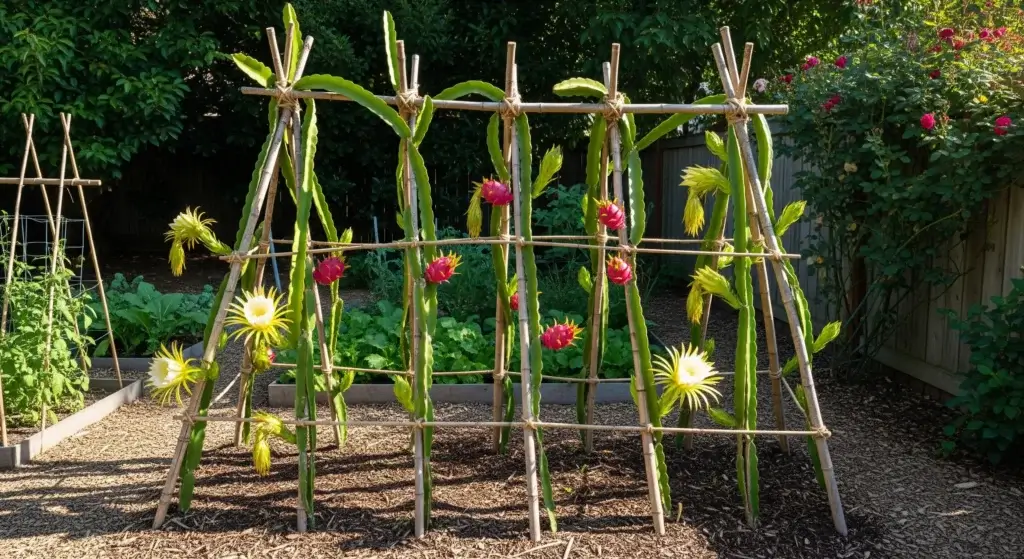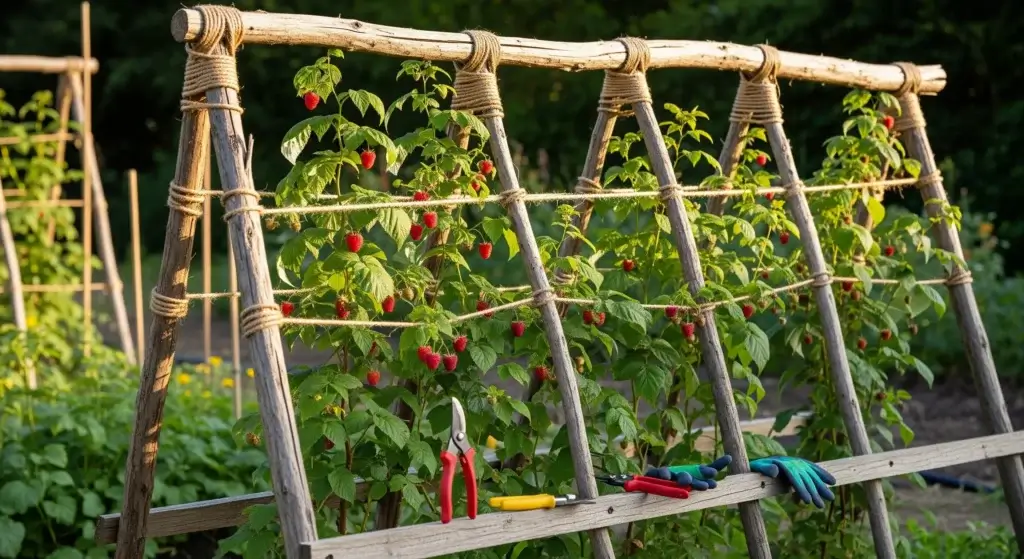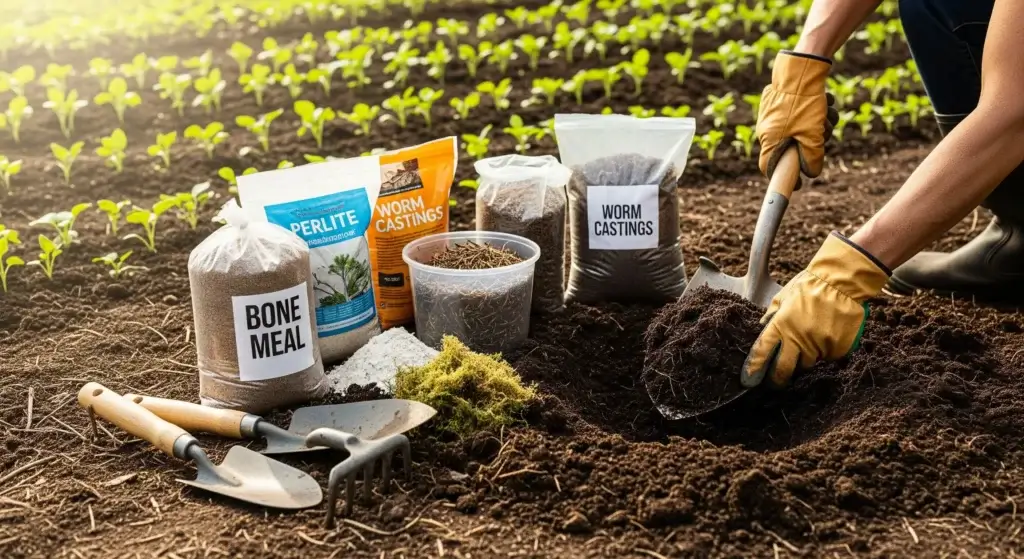
If you’re growing cucumbers in your garden, you know how satisfying it is to harvest a crop of fresh, crisp veggies.
However, like all plants, cucumbers need the right nutrients to grow strong and produce a bountiful harvest.
While there are plenty of commercial fertilizers available, making your own homemade fertilizer is not only cost-effective but also environmentally friendly.
Plus, it allows you to control exactly what goes into your garden.
In this post, we’ll explore some of the best homemade fertilizers for cucumbers, discuss their benefits, and provide simple DIY recipes that will help your cucumbers thrive.
Advantages of Using Homemade Fertilizer
Using homemade fertilizer offers several benefits that can enhance the growth and yield of your cucumber plants:
Cost-effective
One of the biggest advantages of making your own fertilizer is that it saves money.
Most homemade fertilizers use ingredients that are readily available in your kitchen or garden, making them a budget-friendly option for gardeners.
Eco-friendly
Homemade fertilizers are often made from natural ingredients, reducing the need for synthetic chemicals that can harm the environment.
This helps promote sustainable gardening practices and protects beneficial organisms in the soil.
- Read also: Nourishing Naturally: How to Make Organic Fertilizers at Home
- Read also: A Comprehensive Guide: Inorganic vs Organic Fertilizers
Customizable
One of the biggest advantages of homemade fertilizers is that you can customize them to meet the specific needs of your cucumber plants.
Different plants require different nutrient balances to thrive, and by making your own fertilizer, you can adjust the mix to provide the right nutrients in the right proportions.
Safe for your family
Using homemade fertilizers made from natural ingredients reduces the risk of exposing your family to potentially harmful chemicals.
Many commercial fertilizers contain substances that can be harmful if ingested or if they come into contact with skin.
According to a study published in the Journal of Plant Nutrition, plants treated with organic fertilizers, like those made at home, often show increased growth and better overall health compared to those treated with synthetic fertilizers.
This makes homemade fertilizers a great choice for anyone looking to grow healthy, productive cucumber plants.
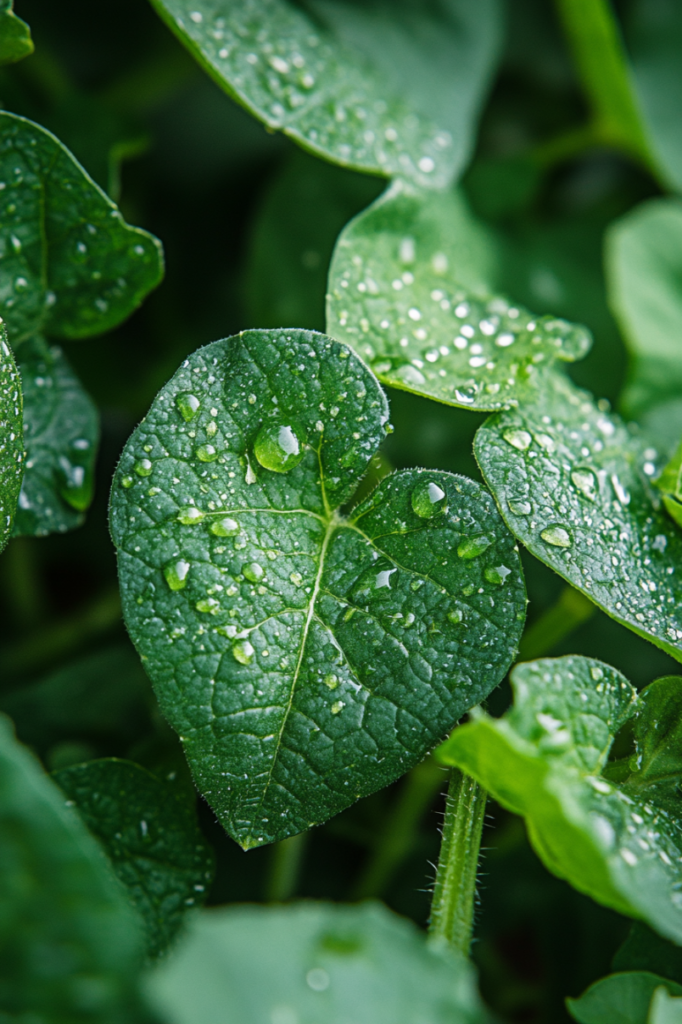
DIY Fertilizer Options
There are several easy and effective DIY fertilizer options you can use to nourish your cucumber plants.
Let’s look at some of the most popular ones:
Compost tea
Compost tea is a liquid fertilizer made by steeping compost in water.
It’s packed with beneficial microorganisms and nutrients that promote healthy soil and robust plant growth.
Making compost tea is simple:
How to make compost tea
- Fill a bucket with water and add a shovelful of mature compost.
- Stir the mixture well and let it steep for 24-48 hours, stirring occasionally.
- Strain the liquid through a fine mesh or cheesecloth to remove any solid particles.
- Dilute the compost tea with water at a ratio of 1:10 before applying it to your cucumber plants.
Benefits for cucumbers
Compost tea enriches the soil with essential nutrients and beneficial microbes, which help improve plant health and increase resistance to pests and diseases.
According to research published in the Journal of Agricultural and Food Chemistry, compost tea has been shown to enhance plant growth and yield by improving nutrient availability and microbial activity in the soil.
Epsom salt
Epsom salt, or magnesium sulfate, is another excellent homemade fertilizer for cucumbers.
Magnesium is a vital nutrient for plant growth as it plays a key role in photosynthesis, while sulfur helps in the production of essential enzymes and proteins.
How to use epsom salt
- Dissolve 1 tablespoon of Epsom salt in a gallon of water.
- Use this solution to water your cucumber plants once a month, or spray it directly onto the leaves for a foliar feed.
Benefits for cucumbers
Epsom salt can help prevent magnesium deficiency, which is common in cucumber plants.
Signs of magnesium deficiency include yellowing leaves with green veins.
By providing an adequate supply of magnesium, Epsom salt ensures that your cucumbers have the nutrients they need for strong, healthy growth.
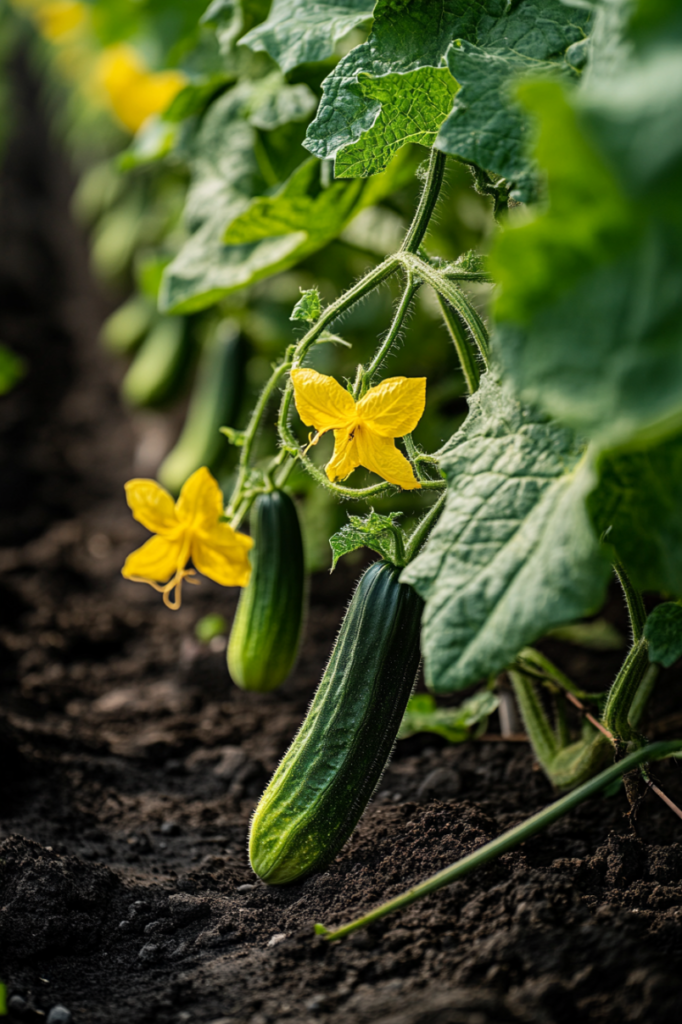
Banana peels
Banana peels are rich in potassium, an essential nutrient that helps plants with water uptake, enzyme activation, and overall growth.
Potassium also plays a crucial role in the development of strong roots and resistance to diseases.
How to use banana peels
- Chop up banana peels into small pieces and bury them around the base of your cucumber plants.
- Alternatively, you can make a banana peel tea by soaking the peels in water for a few days and then using the liquid to water your plants.
Benefits for cucumbers
The potassium from banana peels helps improve the overall health of cucumber plants, leading to stronger growth and higher yields.
A study in the Horticultural Science Journal found that potassium-rich fertilizers, like those made from banana peels, can significantly enhance fruit quality and yield in cucumber plants.
Coffee grounds
Coffee grounds are a great source of nitrogen, which is vital for leafy green growth.
They also contain other essential nutrients like potassium and phosphorus.
How to use coffee grounds
- Sprinkle used coffee grounds around the base of your cucumber plants or mix them into the soil.
- You can also make a liquid fertilizer by steeping coffee grounds in water for a few days and then using the liquid to water your plants.
Benefits for cucumbers
Coffee grounds can help improve soil structure, increase nitrogen content, and promote healthy root development.
However, it’s important to use them in moderation, as too much nitrogen can lead to excessive leaf growth at the expense of fruit production.
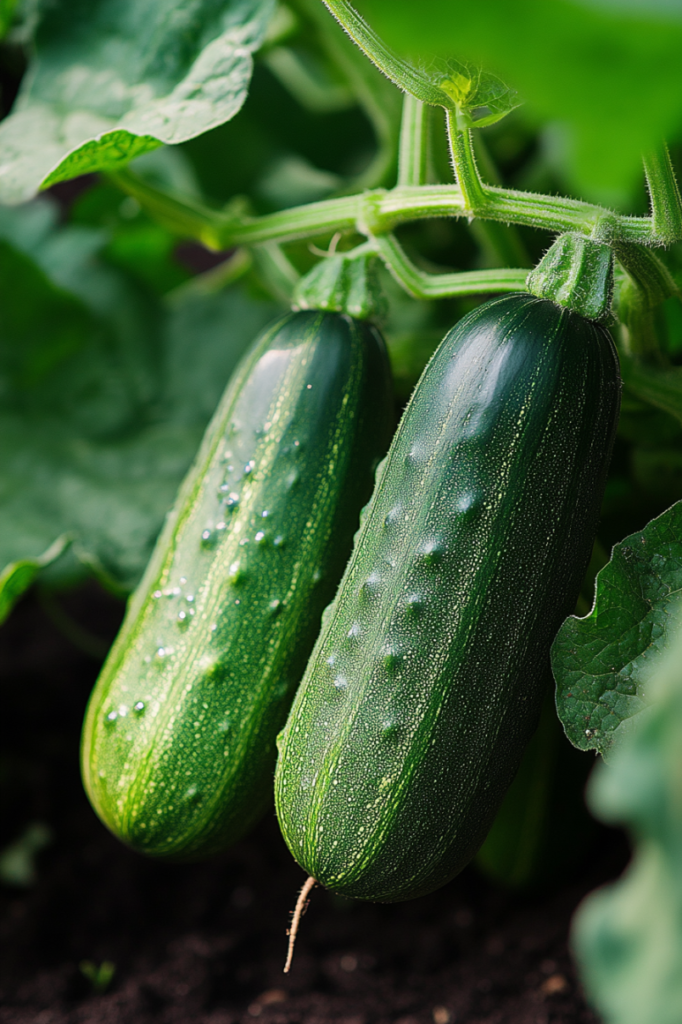
Additional Tips for Fertilizing Cucumbers
To get the most out of your homemade fertilizers, keep these additional tips in mind:
Test your soil
Before you start applying any fertilizer, it’s important to test your soil.
Soil testing helps you understand the nutrient content and pH level of your soil.
This information is crucial because it allows you to tailor your homemade fertilizer to address any specific deficiencies or imbalances.
Rotate fertilizers
Using different types of fertilizers throughout the growing season can be beneficial.
Each type of fertilizer provides a unique set of nutrients and rotating them helps ensure that your cucumber plants receive a balanced diet.
Water regularly
Cucumbers require consistent moisture to grow well.
Regular watering is essential, especially after applying fertilizer.
Watering helps dissolve the nutrients and allows them to penetrate the soil, reaching the plant roots effectively.
Mulch
Adding mulch around your cucumber plants offers several benefits.
A layer of mulch helps retain soil moisture, which is crucial for healthy plant growth.
It also regulates soil temperature, keeping it cool in hot weather and warm during cooler periods.
Mulch can also reduce weed growth, which competes with your cucumbers for nutrients and water.
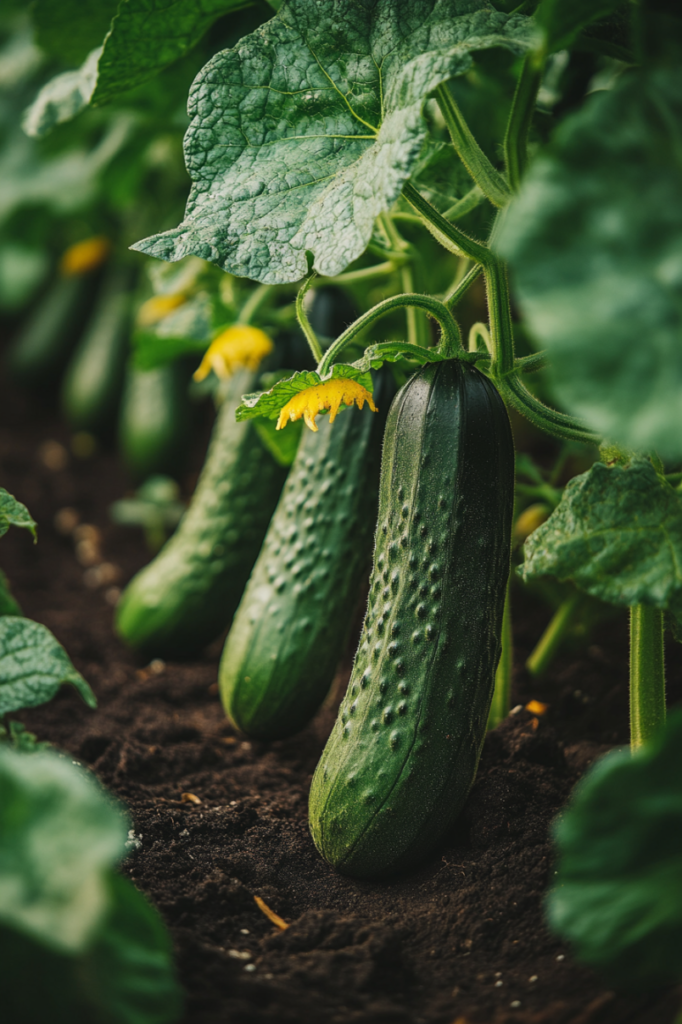
- Read also: A Comprehensive Guide: Inorganic vs Organic Fertilizers
- Read also: Feeding Your Florets: The Best Natural Fertilizers for Cauliflower
Final Thoughts
Using homemade fertilizers for cucumbers is a great way to promote healthy, sustainable gardening.
Not only are these fertilizers cost-effective and environmentally friendly, but they also provide your plants with the nutrients they need to grow strong and produce a bountiful harvest.
Whether you choose compost tea, Epsom salt, banana peels, or coffee grounds, you can feel good knowing that you’re nourishing your cucumbers with natural, homemade solutions.

